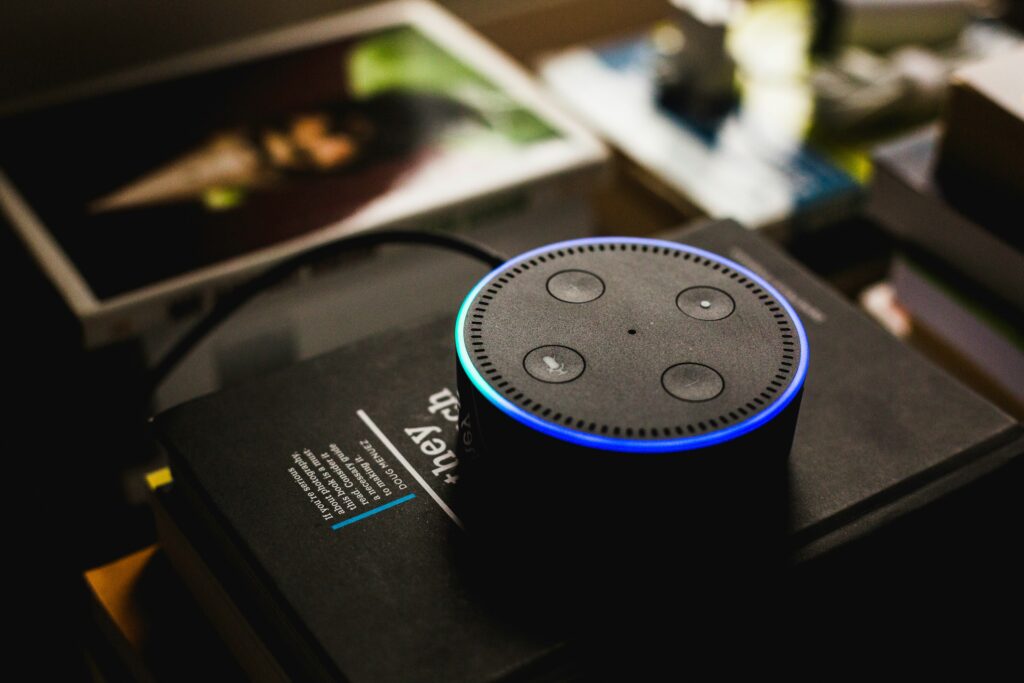“Hey Google, what’s the cheapest flight on November 15th from JFK to Atlanta?” A simple question using voice search technology is just the beginning of how technological advances are slowly changing the way we communicate and search for information.
Voice search, once a significant topic in SEO circles, has seemingly taken a backseat amidst the buzz surrounding AI technologies. While AI brings new capabilities and complexities, the importance of optimizing for voice search, particularly through natural language and complete phrases, remains crucial for digital marketers to connect with users in more conversational ways.
According to the Digital Marketing Institute, about 30 percent of browsing happens without screens. Today, many people own a smart home device like Alexa or Google Home and use voice search for “navigational” or “informational” type queries such as, “Hey Google, is it going to rain today?”.
The next opportunity for travel marketers is to understand how voice search might impact “transactional” type terms, for example, “How much does it cost to visit the MoMa in New York City.” A follow up command could be “Okay, find me the cheapest ticket for a family of four.”
The biggest reason marketers in the travel and tourism industry should hop on the voice search bandwagon is because their customers already have. According to a Forbes article written in March 2023, fifty percent of U.S. consumers use voice search daily. It’s important marketers in the travel industry do not overlook this. According to a study by Google, about 30% of travelers reported using voice search to find information about accommodations, travel options, and other related travel services.
Applying Voice Search to Travel
There are many benefits of creating a voice search strategy for travel and tourism marketers. Expedia was an early adopter of voice search way back in 2016. They decided to partner up with Amazon’s Alexa to help users book, cancel, and keep up with rewards all through voice search. Travelers were able to easily find a flight or hotel room and book without even lifting a finger. Users were allowed to specify what kind of hotel or flight they preferred to book, according to characteristics prior to confirmation.
As Alexa gained momentum in 2016, Expedia saw the success of their voice search strategy as a positive sign, motivating them to further explore its potential in Artificial Intelligence. The travel company slowly branched into Google Assistant in 2018. Travelers could now ask Google, alongside Alexa, to book a hotel, ask about what to pack for a certain destination, or even check to see how many Expedia Rewards points they have in their account.
Now that Expedia has performed so well with the integration of a voice search strategy, the travel company started to expand into an AI assistant development called “Romie” in May 2024. The SVP, Chief Architect, and Head of Data Management and Governance at Expedia, Rajesh Naidu, acknowledged how some are skeptical about the future of AI-powered travel assistants. However, he believes Romie’s ability to evaluate a conversation can help. According to Expedia, Romie helps travelers “roam” the world and organize a trip similar to an offline travel agent. Consumers can rely on Romie to simplify the travel process. The AI assistant helps plan trips, book hotels, flights, and acts as a virtual concierge in case of unexpected travel changes.
Without the development of voice search and data-testing of consumer needs, Romie wouldn’t be possible.
To adapt, marketers in the travel industry should focus on using long-tail keywords in blogs and web content. These should match the way people ask questions in natural language.
Most consumers currently use voice commands on their mobile devices to dictate texts or in their car to get directions. It’s important for travel marketers to focus on mobile optimization. They should make sure their website is mobile-friendly, as most voice searches are conducted on mobile devices. This includes having a responsive design, fast loading times, and easy navigation.
Another way travel and tourism marketers can adopt a voice search strategy is by optimizing their content for local search and to consider how voice search differs from text search.
Voice searches typically contain more detailed questions, unlike text searches that use shorter, less structured queries. It is easier for voice search to reference websites found on the first page of Google than on the second. This allows companies to target longer keyword phrases in their SEO efforts. Travel brands and marketers should ensure that their business is easily found in local searches for local SEO. This includes claiming and updating your Google My Business listing, using targeted keywords, and ensuring your name, address, and phone number are consistent across platforms. One way marketers can do this is by using SEMrush local listings management. The platform helps to automatically update local profiles on multiple sites, which, all things being equal, makes it more likely for a business to be found in local voice search.
Aside from local SEO, travel and tourism businesses should make sure to answer commonly asked questions relevant to their product(s) or services. This can boost a brand’s presence in voice search results given the focus on informational type queries. This doesn’t mean over-optimizing an FAQ section for SEO. Look to answer questions naturally in content on product or destination landing pages or within a relevant blog article.
Travel marketers should make sure they are optimizing their content for “Near Me” searches. According to another study with Google, 48% of experience bookings are happening once travelers arrive at their destination. Many voice searches include “near me” questions. It is important to include relevant location information like addresses, events in the area, names of people, and more.
Wrapping it up
Some may argue that voice search is a thing of the past, as AI becomes a part of more marketing conversations today. They say “voice search is stuck in marketing tourism limbo”. However, this is a false statement that is just a rumor without much evidence of support. By the end of 2024, it is predicted that 8.4 billion devices with voice assistants will be on the market (“How to Target…”). This means it will be rarer to find a device without voice search than one with it. Travel and tourism marketers must shift their strategies with the thought of voice search in mind. Voice assistants are only growing smarter with the introduction of AI, so it’s time we do too.



No comments.